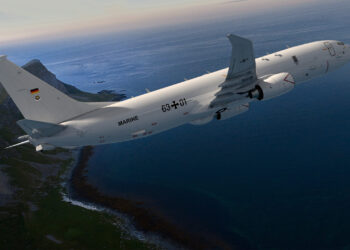,
Singapore: Asia Pacific naval forces kicked off the region's biggest sea defence exhibition in Singapore Tuesday, highlighting the need to protect the world's key shipping lanes from extremist threats. Warships from around the world docked at the city-state's Changi Naval Base to participate in the four-day International Maritime Defence Exhibition and Conference (IMDEX Asia).
As globalisation pushes up trade volumes, the need to protect sea lanes is growing, and the region's navies could increasingly be called upon to help maritime authorities beef up security, delegates were told.
Singapore's Second Defence Minister, Ng Eng Hen, said global maritime trade has soared nearly 50 percent in the 10 years to 2005 to 7.11 billion tons (6.4 billion tonnes).
He told the IMDEX Asia 2007 show more than 80 percent of the world's trade passes through water, and 90 percent of general cargo is transported through shipping containers.
“While maritime trade facilitates global trade and development, it also has increasingly become a potential target and means for dangerous and illegal activities,” Ng said.
“This is exacerbated by the difficulty to precisely discern movements, activities, cargoes, intentions or ownership of maritime and coastal assets. In recognition of these significant threats, many governments are increasing security measures to deter attacks on their vital and yet open system.”
Host Singapore is one of three countries bordering the Malacca Strait, a narrow waterway that has one of the world's busiest shipping lanes. Security experts believe it could be targeted by terrorists.
The cost of any disruption of trade in the strait, which carries half the world's oil supplies from the Middle East to Asia, would be astronomical, Ng warned.
IMDEX Asia 2007 is being held amid a naval buildup in the region. Navies are expected to spend 108 billion US dollars on boosting submarine and other maritime defences over the next 10 years, outstripping maritime defence expenditure in the US and Europe.
Nearly 30 percent, or 30 billion dollars, will go to acquiring submarines. The most orders will come from emerging Asian power China, including five nuclear-powered missile submarines and 30 attack submarines to add to its current fleet, organisers said.
India plans to acquire up to two nuclear and five conventional submarines, while Japan plans to acquire two.
Indonesia plans to buy four submarines, Singapore is to acquire two, and neighbouring Malaysia will buy two French boats by 2010. The country does not currently have any submarines.









